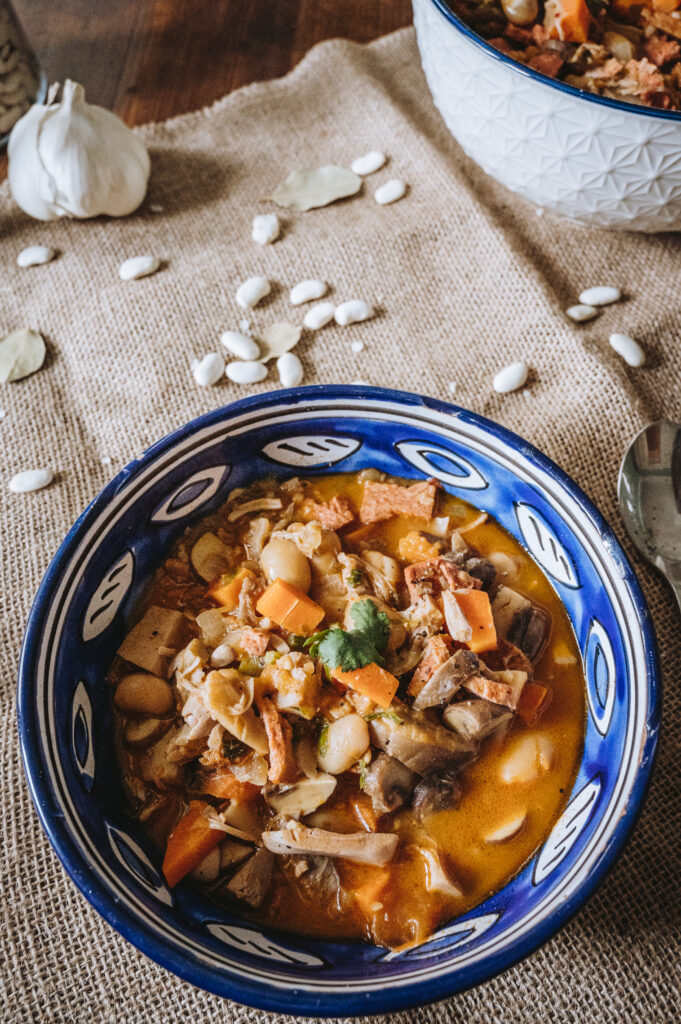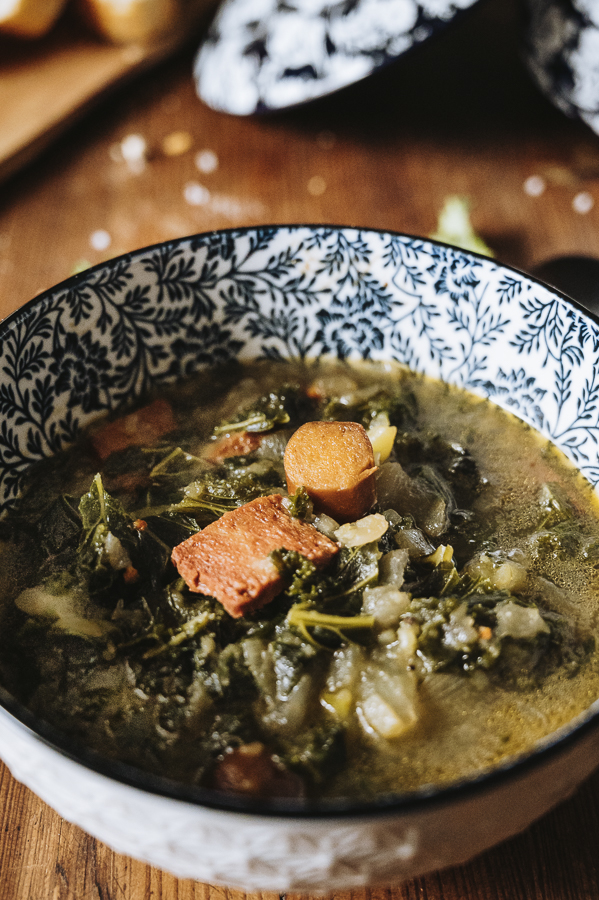
TRIPAS À MODA DO PORTO
The signature dish of the city of Porto is a rich stew that will impress everyone.

Portugal
Portuguese cuisine is a mixture between Atlantic and Mediterranean cuisine, with many flavors that are distinctive and unique. It is one of the most internationally famous cuisines, offering a number of delicacies.
Portugal is a European country located on the Iberian Peninsula of Southwestern Europe, also including two archipelagos in the Atlantic – Azores and Madeira. It is bordered by the Atlantic Ocean to the west and south, and by Spain to the north and east.
Portugal is one of the oldest European countries with a territory that has been continuously settled, invaded and fought over since prehistoric times. It was first inhabited by Pre-Celts and Celts and later ruled by the Romans and Visigoths. Portugal as a country was established in a year 868 and later the Kingdom of Portugal was proclaimed in the 12th century.
During the 15th and 16th centuries, known as the Age of Discovery, Portugal became a global maritime and commercial empire and one of the world’s most important economic, political and military powers. Portuguese instigated maritime explorations that led to many discoveries including Brazile and the expansion of the Portuguese empire in Asia. But during the 18th century, the Lisbon earthquake (1755), the Napoleonic Wars and the independence of Brazil (1822) led to a decay of Portugal’s grandeur. The 19th century was marked by a long civil war, while two revolutions of the 20th century shaped modern Portugal – 1910 revolution led to the establishment of a democratic, but unstable Portuguese First Republic (later replaced by the Estado Novo authoritarian regime) and the Carnation Revolution (1974) marked the end of the Portuguese Colonial War and brought democracy back to Portugal.
Throughout its long history, Portugal has made an important cultural influence across the world and today it is one of the most peaceful, democratic, stable and prosperous countries in the world.
Portuguese cuisine is a reflection of its history. During the Middle Ages, Portuguese cuisine was relatively basic, based on fish and meat, cereal and legumes, while bread made with rye or wheat was widely consumed. From the 15th century, during the Age of Discovery, its culinary culture started to change. Many explorers brought new ingredients and spices to Portugal, making it a melting pot of tastes from many different continents. They were the first European country to reach China, Japan, and Ethiopia, and the Portuguese played a major role in food globalization. They brought rice and tea from Asia, coffee and peanuts from Africa, and pineapples, peppers, tomatoes, and potatoes from the Americas. They also introduced coriander, pepper, ginger, curry, saffron, and paprika to Europe. The national dish bacalhau‘ – dried salted cod – was an invention of Portuguese explorers who salted and sun-dried their catch from cold Scandinavian seas, making it last on long voyages of discovery. Today there are said to be 365 different ways of preparing it, one for each day of the year.
On the other hand, due to its substantial history of colonization, Portugal had a strong influence on cuisines throughout the world. For example, Brazilians’ passion for sweets is a Portuguese heritage – they introduced the idea of dessert – eating sweets after a meal – in Brazil. It is also believed that the Portuguese introduced corn on the African continent and tea became popular in England in the 1660s after the Portuguese princess Catherine of Braganza (Catarina De Bragança) brought her preferred mixture of leaves from the colony of Macau to the English court.
Despite its modest size – little over 92 thousand square kilometers – Portugal has an extensive list of traditional dishes and large diversity of ingredients makes its cuisine special and unique. Due to its geographical location, Portuguese cuisine is dominated by seafood, especially codfish, which is included in many traditional dishes. But a broad variety of vegetables, citrus fruits, cheeses and pork meat are often used. One of the most important ingredients is an olive oil of excellent quality, used both for cooking and flavoring meals. Herbs and spices are also widely used, particularly coriander, parsley, black pepper, cinnamon and piri piri.
Breakfast in Portugal is called pequeno almoço meaning ‘little lunch’ and, as its name suggests it’s a small event including bread and cheese, accompanied by coffee usually consumed before 9:00. Sweet pastries. of which there are many, are also very popular for breakfast in Portugal, particularly freshly-baked pastel de nata which are one of the country’s most famous sweet delicacies. On the other hand, lunch (almoço) and dinner (jantar) are very important parts of the day for every Portuguese, typically including three courses. Lunch is usually served between 12:00 and 14:00, while dinner is eaten relatively late, between 20:00 and 21:00, sometimes even later on weekends. Soup is usually served as one of the courses, from which Caldo Verde is a favorite. Other popular dishes include Cozido à portuguesa, a thick stew of vegetables with various kinds of meat; Tripas à moda do Porto made with tripe and beans, and a famous sandwich Francesinha from Porto, a Portuguese version of Croque Monsieur.
Portugal is not an easy country for vegetarians, and especially not for vegans. Except for a few soups, almost every dish contains meat or fish, and even dishes that could be vegetarian often have meat stock. Also because a lot of traditional Portuguese dishes include fish, interpretation of some dishes in vegan form was not an easy task.

The signature dish of the city of Porto is a rich stew that will impress everyone.

Portugals national soup is a hearty, comforting, easy to make and extremly healthy dish.
Thank you for taking your time and reading our recipes! We hope that we have inspired you to try out some dishes.